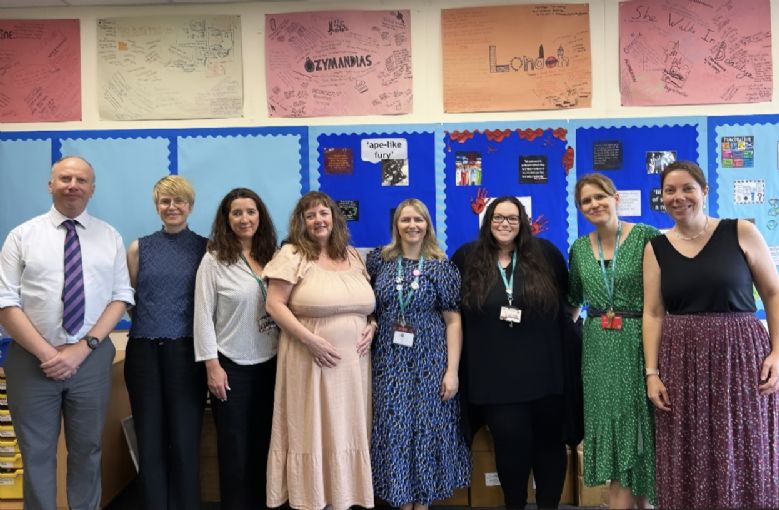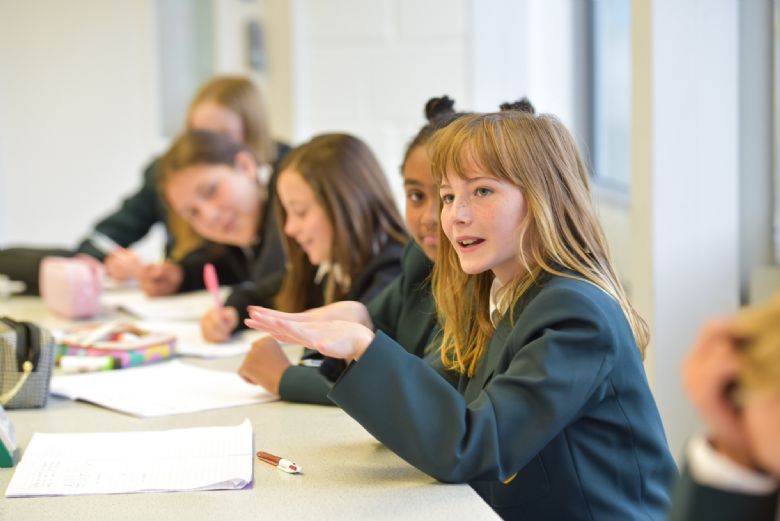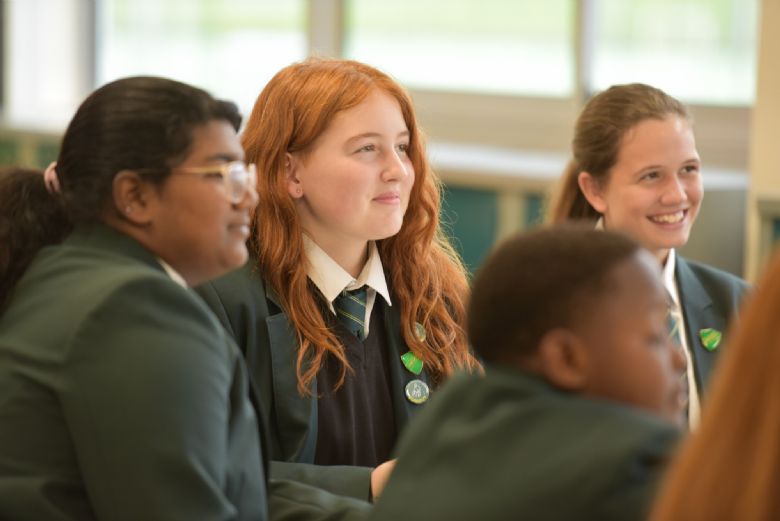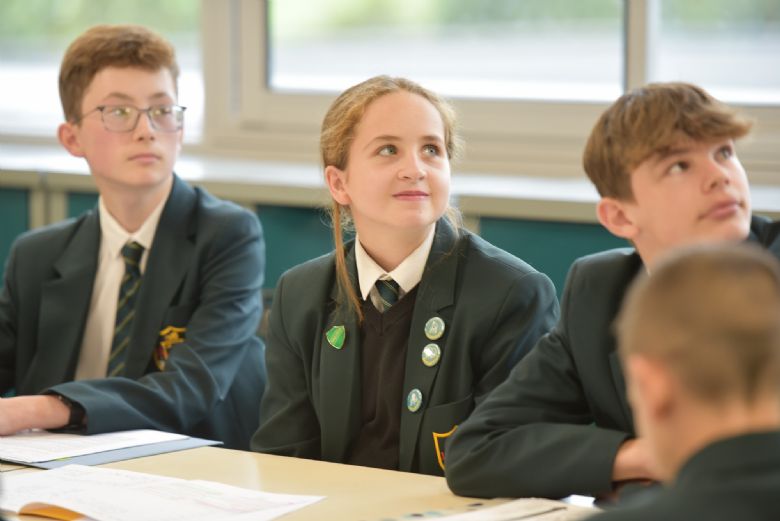 Welcome to the English Department
Welcome to the English Department
|
|
|
|
|
|
|
What is English and why is it important?
English is the study of both the English language – in its various forms – and English literature. Mastery of the English language is crucial. Students need to develop their skills in being able to read, decode meaning, analyse and evaluate a range of different texts, both fiction and non-fiction, for success not just in English, but across the curriculum and beyond into further education and their careers. The ability to write clearly, coherently and accurately is a key skill for future success. Students’ ability to speak clearly, present effectively, and discuss thoughtfully is also vital.
English Literature is the study of novels, plays and poetry written over the last 400 years or so, from classic writers like Shakespeare to modern writers like Carol Ann Duffy. It’s crucial in developing skills of empathy, analysis and identifying evidence, opening students’ eyes to the rich variety of the human experience.
“A reader lives a thousand lives before he dies. The man who never reads lives only one.”
George R.R. Martin
What do students learn in English?
| English Language | English Literature |
|
View our English Literature Key Terms Glossary here
|
Challenge and support in English
In English, all students are taught in mixed ability groupings. Teachers pitch our challenging curriculum at the top, setting the highest expectations, and then scaffold to support all students, through models and exemplars and sharing clear success criteria. Where appropriate, teaching assistants provide classroom support to individual students.
Outside of English lessons, some students will receive additional English support through a variety of intervention programmes, depending on students’ individual needs.
All students are set homework to complement their in-class studies. Students are issued with homework booklets for each half term or term of study. Additionally, they are encouraged to use the Sora reading app to read for pleasure.
How is English assessed?
At key stage three, students are assessed by a mixture of formative and summative assessments within each scheme of work. Their progress in reading and writing skills is assessed, with teachers focussing on the particular skills that have been taught in the unit of work.
At key stage four, students are assessed using the criteria set by the exam board for the different reading, writing or Literature assessments.
For GCSE English Language, students follow the Edexcel exam board specification. For GCSE English Literature, students follow the Eduqas exam board specification.

Learning beyond the classroom
Students are encouraged to read widely outside of the classroom. The Sora reading app, provided by Hampshire School Library Service, gives students free access to thousands of e-books, audiobooks and magazines. Eggar’s takes part in the annual Hampshire Book Awards, where students in year 7 and 8 get to vote on their favourite book from a shortlist. There is also a teen book club where students can share their reading experiences. Author visits (currently virtual) enable students to see the faces behind the books.
The English department also run theatre trips, engages in local reading and writing competitions, and champions public speaking opportunities such as the Rotary Club Youth Speaks and the Mock Trial programme.
Where can English lead?
English is about who you are, how you express yourself, and how you think critically about the world around you. Employers value the skills provided through the study of English such as communication, collaboration and critical thinking. The study of English can lead to careers as diverse as law, event management, publishing, digital marketing, teaching and film and TV production. But whatever career students pursue in the future, the ability to communicate effectively in English will be key.


